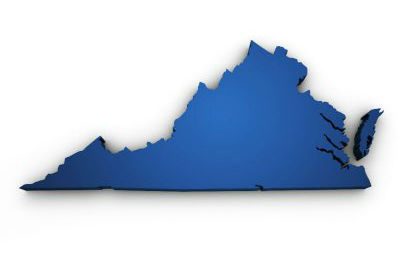
The Commonwealth of Virginia is tied for second among states in overall emergency preparedness rating in the recently released 2020 National Health Security Preparedness Index report from the Robert Wood Johnson Foundation and the Colorado School of Public Health.
Throughout the COVID-19 pandemic, professional caregivers working in hospitals and health systems across Virginia have cared for thousands of patients stricken with the novel coronavirus, and in partnership with government officials and the broader health care community, have been immersed in the strategic coordination and response to this unfolding situation.
Virginia’s effective response to the public health threat posed by COVID-19 is a testament to the intense, ongoing emergency preparation efforts of hospitals and other stakeholders.
“It is gratifying to see Virginia’s hard work recognized in the 2020 National Health Security Preparedness Index report,” Virginia Hospital & Healthcare Association Emergency Preparedness Director Kelly Parker said. “None of us ever wants to experience the fallout from public health emergencies, the physical and emotional toll it takes on people, or the economic damage it inflicts. Yet history shows us that major storms, viral outbreaks, and even manmade destructive events occur, unfortunately. That obligates emergency management partners in the public and private sector, including government, health care, public safety and first responders, to plan, prepare, strategize, and drill year-round so we are ready to rise to the occasion when needed.”
The National Health Security Preparedness Index report is compiled based on 64 sources and reflects a comprehensive assessment of state-level emergency preparedness for natural disasters, disease outbreaks, and other calamities that pose large scale threats to public health.
Virginia is among a select number of states that has been ranked above the U.S. average score in each year of the report since 2013. On a 10-point rating scale, the Commonwealth scored a 7.4, leaving it tied with Nebraska for second place among the 50 states and the District of Columbia in the 2020 report. The national average score is 6.8 out of 10.
This is the second national report to be released in recent months showing that Virginia’s emergency preparedness infrastructure compares favorably to its peer states across the nation. In the Trust for America’s Health – Ready or Not 2020 Annual Report on Emergency Preparedness, Virginia is among the states rated in the highest tier for emergency preparation.
Virginia hospitals are actively involved in planning for, and responding to, emergency situations such as natural disasters, manmade incidents, and disease outbreaks, as evidenced by the coordinated state response effort to the ongoing COVID-19 global pandemic.
In the Commonwealth, this work and engagement with state, federal, and local partners is facilitated through the Virginia Healthcare Emergency Management Program that was established in 2002 as a partnership between VHHA and the Virginia Department of Health to help foster collaborative planning efforts between health care facilities, first responders, and community partners at the local and regional level.
More recently, VHHA and VDH jointly embarked on an effort to allocate support and resources to long-term care facilities across the Commonwealth as part of the ongoing COVID-19 response effort, and previously partnered on the development of the Long-Term Care Mutual Aid Plan and Memorandum of
Understanding to assist with planning for emergency evacuation of assisted living facilities. VHHA and its members also remain engaged in work with state officials and private sector partners in support of supplemental efforts to help address some of the challenges identified in long-term care facilities and congregate care settings during the pandemic, recent critical disruptions in the personal protective equipment medical equipment supply chains, and the need for sustainable financial support for health care providers so they are ready to respond to a second COVID-19 wave and future public health threats.










